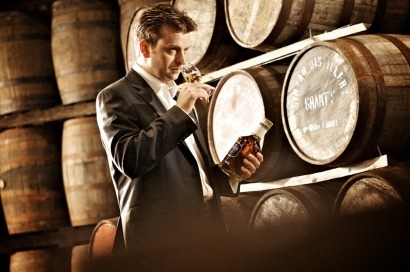
Operating on biogas (created from residual malt materials used in distillation to produce alcohol), the J620 will be the fourth Jenbacher gas engine onsite and will solidify Grant’s as one of the cleanest and largest independent power producers in the region. GE will deliver the unit to William Grant & Sons this fall.
Grant’s is continuing its history of creating more efficient distilling methods while limiting environmental impact. “Our ability to generate on-site power at the Girvan distillery has been critical in our continued efforts to reduce our carbon footprint while increasing efficiency,” said Conn Lynch, Girvan site leader, William Grant & Sons. “The addition of the J620 also qualifies this site for Renewable Obligation Certificates, once again adding to our extensive green credentials.”
Grant’s already has three J420 Jenbacher gas engines installed at the plant, with two commissioned in 2009 and one commissioned this summer. In total, the generation plant can generate about 7 MW.
The new engine, supplied to Grant’s through Clarke Energy in Liverpool, has the ability to run at excess of 43 percent electrical efficiency operating on biogas. As such, the J620 enables customers to utilize local and abundant waste materials for independent power generation. At Grant’s, the J620, which will be operational early next year, will reuse the whisky wastewater (typically cast off as waste during the manufacturing process) to power the facility. This, in turn, will reduce the waste generated during the distilling process and allow the facility to operate at increased efficiency. Meanwhile, the engine’s exhaust also will be captured and recovered as thermal (heat) power to produce steam used in the distilling process.
The delivery of the J620 underscores the growing global demand for flexible, cost-effective and efficient electricity generation, specifically utilizing regional fuel materials. “GE’s flex fuel gas engine solutions give our customers the ability to utilize naturally occurring and local resources to generate power while significantly reducing their environmental impact,” noted Rafael Santana, President and CEO, GE Gas Engines for GE Energy. “With our gas engine technologies, companies are empowered to meet aggressive carbon reduction goals while improving operating costs.”
Collaborating with organizations in the food and beverage industry to develop localized and distributed advanced power generation technologies is central to GE’s dedicated approach to the global food and beverage industry. By working with customers to further refine solutions such as the combined heat and power solution based on GE’s Gas Engines business, the company will continue to develop innovative solutions to the industry’s most pressing energy challenges.
The gas engines employed in this solution also have applications in industries ranging from hospitals to universities, sport stadiums to farms and from airports to small towns. Through existing collaborations, with corporations such as Clarke Energy, GE’s authorized distributor and service provider for Jenbacher gas engines in the United Kingdom, GE Gas Engines maintains an unparalleled ability to provide service and support globally, while innovating locally.
For additional information:

